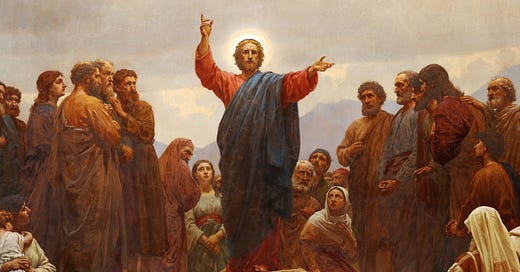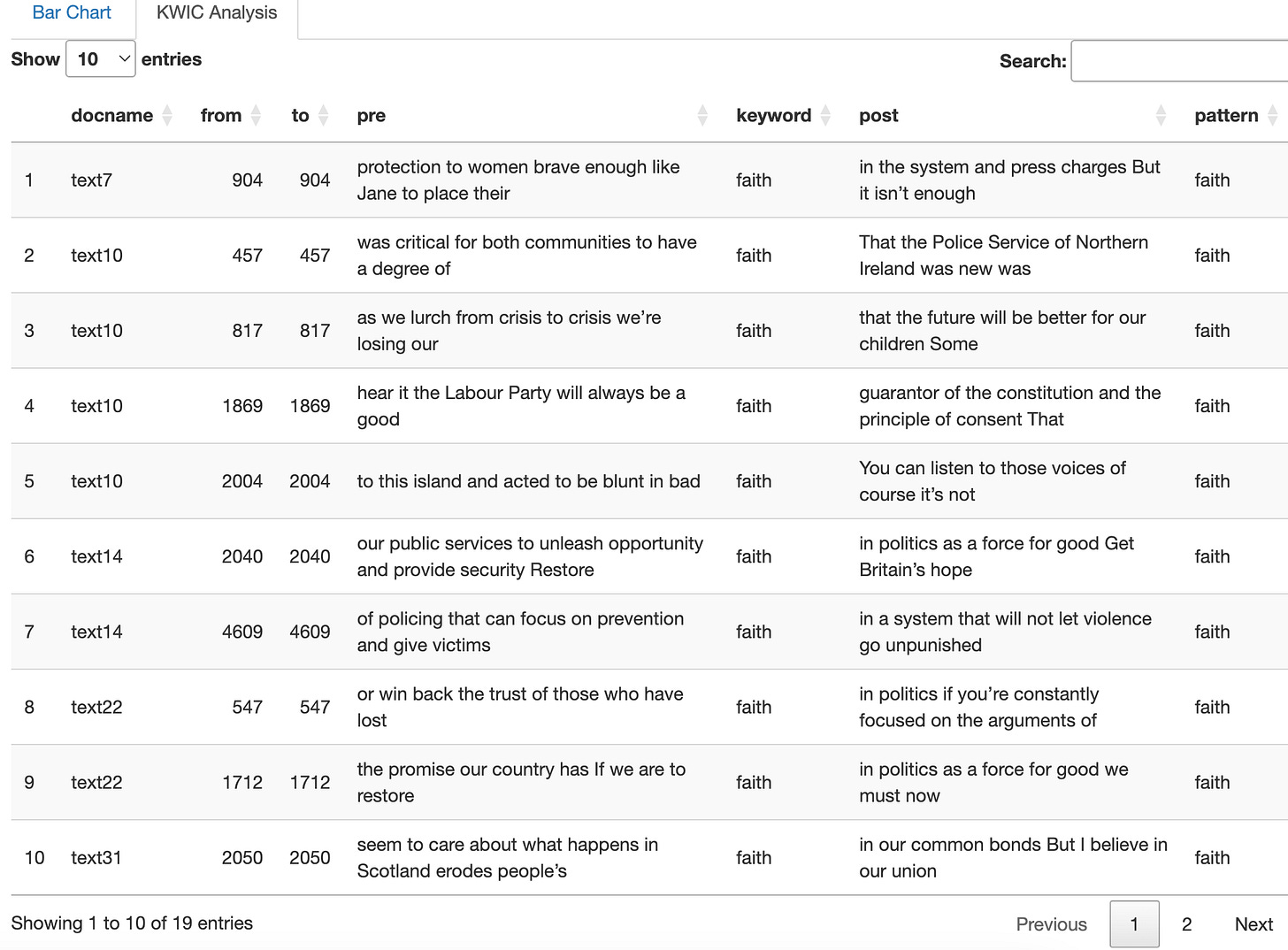Religion in the speeches of Keir Starmer: a metaphorical analysis
The Labour leader dropped a rare religious allusion to criticise his opponents in his first political intervention of the year. But don't all politicians sermonise?
Labour leader, Keir Starmer, gave a speech in Bristol today in his first major political intervention of 2024.
The political journalist Lee Harpin trailed a section of the speech in which the Labour leader used a religious metaphor to take aim at his critics who see politics as a hobby or “a sermon on high”.
I’ve been studying Starmer’s speeches recently, not least his use of metaphors. Between January 2020 and Summer 2023 he’d given 180 speeches.
In that time, it’s been rare to hear Starmer use religious tropes or metaphors. The bar chart below gives a sense of things.
“Mission”, “vision”, and “faith” are all fairly salient words across his speeches. By contrast words like “sacred”, “pray”, “doctrine” and “bless” appear nowhere.
On a mission, but not a missionary?
“Mission” is one of the turns of phrase Starmer uses that could be construed in a religious way. He uses the word to talk about his own or the Labour Party’s mission. In keeping with its religious connotations, there’s a real sense of certainty - verging on normativity - around the way he uses the word. It’s of particular interest because specific policy ideas and issues co-occur with “mission” in his speeches too.
Starmer variously talks of having a mission on “growth”, the “NHS”, “health”, “clean energy” and “crime”.
These policy areas sit safely in Starmer’s “missions” values space, and that’s probably a good place to be if you are a progressive looking to frame policies on health, the NHS or climate.
The other factor that accounts for the salience of “missions” within Starmer’s speeches is the “missions agenda” that Labour have been sketching out along with the economist Marianna Mazzucato.
Below is a sample of Starmer’s use of the word “mission” in context.
Faith or vision?
I feel UK politicians are not comfortable with religious language and will tend to avoid it as much as possible. This is in contrast to US political culture and grass roots organising where a religious tenor is pretty normal (and often progressive too).
Starmer’s speeches aren’t overflowing with religious rhetoric.
Nonetheless, the other significant examples of religious language in his speeches are “faith” and “vision”. For Starmer “faith” is invoked as something that is at risk and running in short supply. This plays into a critical argument he wants to make about the state of the UK and its governance by the Conservative Party. Starmer speaks of people “losing faith” or having their faith “eroded”. He also talks of the need to have that faith “restored”.
By contrast, there’s a far more positive tenor when Starmer uses the word “vision” though unlike “mission” it’s rare to see specific policies framed alongisde “vision” in his speeches.
“Here endeth the lesson”
Returning to Starmer’s “sermons on high” jibe, there’s a certain irony in a politician whose job so far has been to give ALOT of speeches, criticising his opponents for…. going out and giving speeches. It’s an obvious performative contradiction served up for the gratification of certain political reporters.
Because in a sense all politicians are “sermonisers” and “missionaries”. It's part of their ethos to travel around the land giving speeches - as did Jesus or any other number of religious prophet.
That said, religious metaphors have a fairly low salience across Keir Starmer's speeches and I think this reflects something about British culture more generally. We don't really go in for religious rhetoric. I suspect this is quite different to say... the US.
However, when Starmer talks about policy in terms of a “mission” it’s worth paying attention. It’s rare that he mentions policy specifics, yet it clearly means something when Starmer chooses to elevate a policy to the status of a “mission”, and that’s probably worth noting.
Finally, something to contemplate on below is that religious metaphors aren’t the only ones Keir uses. I might return to these in future.









